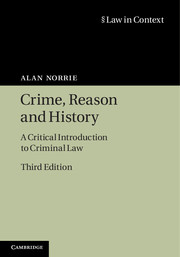Book contents
- Frontmatter
- Dedication
- Contents
- Preface to the third edition
- Preface to the second edition
- Preface to the first edition
- Table of cases
- Table of statutes
- Prologue: A brief history of the ancient juridical city of Fictionopolis
- Part I Context
- Part II Mens rea
- Part III Actus reus
- Part IV Defences
- Part V Concluding
- Bibliography
- Index
Prologue: A brief history of the ancient juridical city of Fictionopolis
(with apologies to Norton Juster)
Published online by Cambridge University Press: 05 October 2014
- Frontmatter
- Dedication
- Contents
- Preface to the third edition
- Preface to the second edition
- Preface to the first edition
- Table of cases
- Table of statutes
- Prologue: A brief history of the ancient juridical city of Fictionopolis
- Part I Context
- Part II Mens rea
- Part III Actus reus
- Part IV Defences
- Part V Concluding
- Bibliography
- Index
Summary
Fact is often stranger than fiction, and fiction can sometimes help us understand fact. Let me tell of an old world with a wise ruler and some enlightened advisers.
One day, the old King was picking through a thick pile of papers. These were tedious to him, though important to their writers, and the chore of reading them caused the King to yearn for some change, if only he could think of one. Fictionopolis had a good name as a city in which all were happy and each knew his or her place, but it must be said that there was a dark side to it. This took the shape of horrific laws under which a person could be put to death, often most unpleasantly, for a wide variety of not very good reasons (and in some cases for no reason at all). The laws were neither fair nor just, and it was because of this that the King had to perform the daily chore of picking through the papers. For these were requests for pardon from execution, and the King really had to make an effort, stifling a yawn, to preserve some semblance of caring for his people. Day in, day out, he would divide the pile into two – this side for the gallows, that side for transportation to some bizarre-sounding island many thousands of miles away where the lucky pardonees could do what they liked, out of sight, out of mind.
- Type
- Chapter
- Information
- Crime, Reason and HistoryA Critical Introduction to Criminal Law, pp. 1 - 6Publisher: Cambridge University PressPrint publication year: 2014

